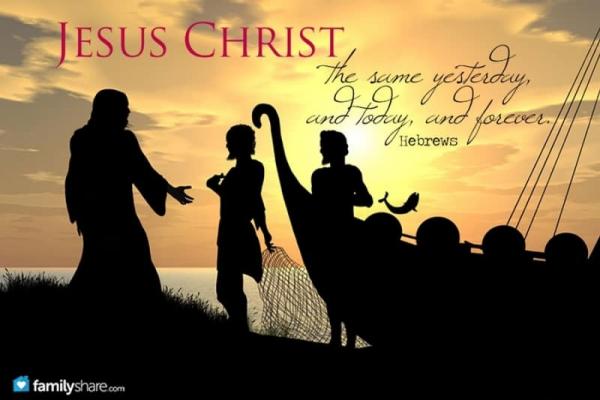
If you're like me, when it comes to understanding the significance of many gospel messages, I think I probably miss as much as I understand. Luckily, I am not alone in this. To illustrate my point, consider this.
Jesus had been preaching to a large crowd (Matthew 14:13-21, Mark 6:31-44, Luke 9:10-17 and John 6:5-15) of roughly 5,000 people in a remote place. In Biblical times, there were no fast food places, nearby restaurants or even spur of the moment caterers. Jesus knew that many of his listeners would not have sufficient strength to return to their villages and towns without collapsing. Jesus was in touch with human bodies and recognized their physical limitations.
The apostles were concerned and inquired if perhaps they should go into one of the neighboring towns and buy food for the crowd. The gospel doesn't specifically tell us, but the apostles were also probably worried about the amount of money needed to feed such a large crowd.
When Jesus heard them, he instructed them to feed the people themselves. The Lord's comments must have shocked the apostles. The apostles appeared to be clueless and astonished. "We have only five barley loaves and two fish. What good is that with so many?" they asked.
Jesus commanded that the loaves and fishes be brought to him; he blessed the food and then asked the apostles to distribute it. After everyone had eaten their fill, the apostles gathered up 12 baskets of food.
In life, sometimes we encounter what seems like a hopeless situation. But perhaps, we partially missed something in the retelling of this story. Did the apostles not realize that Jesus is the bread of life?
The apostles exhibited a lack of understanding of the principles of faith and how knowledge, skill, persistence and opportunity work in sharing and promoting the gospel. The apostles acknowledged that their food was inadequate to feed a crowd that size, but sometimes the teachings of the gospel fly in the face of reason. The hopelessness was the part of the story I have missed countless times.
In modern terms, it demonstrates how there is a general lack of resources available to teach, reach out to others and promote the gospel. Upfront, it always seems that our resources are inadequate, even hopeless. Rationally, we are always overmatched and helpless in reaching out to those in need, teaching the gospel and gospel principals and in doing the work of the Lord.
Interestingly, the gospel writers never idealized Christ's followers even though they were the first generation. The apostles and early Christians were always portrayed with their weakness, frailties and shortcomings. Such a depiction also gives us hope as they parallel our own weakness, frailties and shortcomings. We already have what we need. We have the bread of life and the restored gospel to overcome our hopelessness. We share Christ's ministry by divine command.
In the Gospel of James 2:17, we are told "...faith, if it hath not works, is dead." With so much need in the world, how can we remain inert and fail to reach out to other sons and daughters of God?
Our resources may be few, but through faith and persistence service to others gives us the opportunity to emulate God, and to literally become his face, his hands, and voice in the world.
We are called to follow him, to be close to him. We are his living image. He does not guarantee our success, but he calls us to be like him, to share in his ministry and do what he does.
Jesus calls us to use wherever meager resources are available - no matter what we think the odds are for our success. God works his miracles, often mysteriously, through us. We are quite literally his mortal angels.

